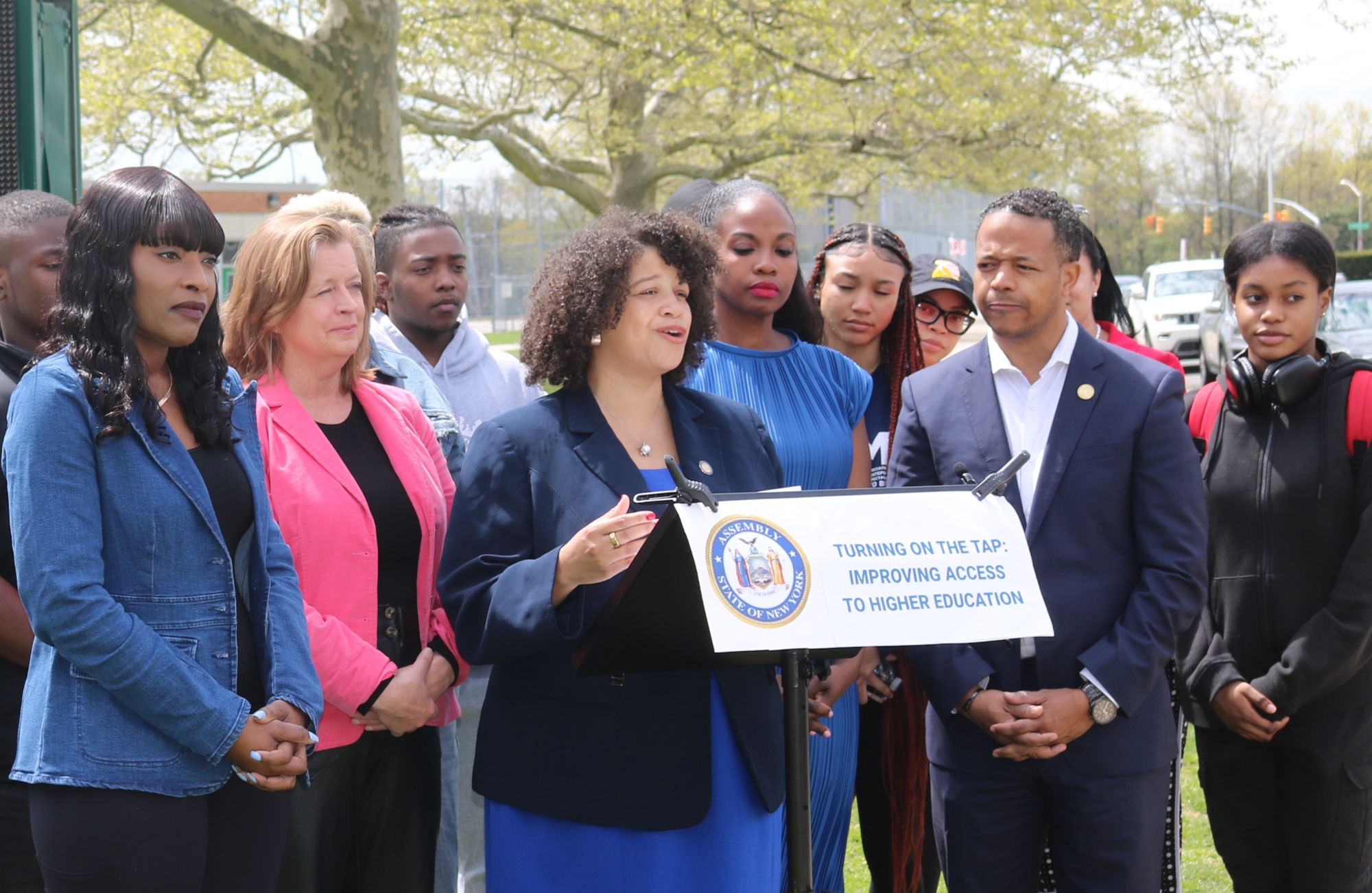Assemblywoman Solages, Long Island Lawmakers Highlight Tuition Assistance Program (TAP) Improvements
Additional $55.7 million allocated for TAP over previous year
Income limit thresholds have been raised for dependent and independent students
Minimum TAP award increased from $500 to $1,000 and part-time TAP expanded
Elmont, New York – Assemblywoman Michaelle C. Solages (D-Elmont) joined lawmakers, parents, and students for a press conference highlighting changes to the Tuition Assistance Program (TAP) included in the FY 2025 New York State budget. The group emphasized the expanded income eligibility for students to receive aid and the doubling of the minimum TAP award from $500 to $1,000. The changes to income eligibility are as follows:
- From $80,000 to $125,000 for dependent students, certain independent students, and students who qualify as an orphan, foster child, or ward of the court;
- From $40,000 to $60,000 for independent married students who have no other tax dependents and
- From $10,000 to $30,000 for single independent students who have no tax dependents.
With more students eligible for the program, college will be more accessible for working families on Long Island and across the state. Amid the ongoing affordability crisis and student debt crisis, support like this gives students and families more financial relief, shaving off thousands of dollars that would have otherwise been accumulated as debt.
Assemblywoman Michaelle C. Solages: “The changes to the Tuition Assistance Program in this budget are transformational. By expanding eligibility and doubling the minimum award, TAP will become the key to making college accessible for thousands of students across the state. In New York, we are choosing college affordability and accessibility over needless debt.”
Senator Kevin Thomas: “Investing in higher education means investing in our future. By including enhancements to TAP’s overall funding and expanded eligibility in this year’s state budget, we are ensuring that affordable college is a reality for every Long Island student. Raising the minimum TAP award to $1,000 will undoubtedly make a positive difference in the lives of students and their families.”
Assemblywoman Taylor Darling: “Excellence in education is one of the pillars I believe will help our youth advance in today’s competitive world. Our newly enacted 2024-2025 state budget gives students an opportunity to access quality education through increased TAP assistance. As your Assemblywoman, I am proud that we were able to pass a budget that increases the TAP income threshold so more students can qualify and increases the minimum award amount per student. This vital assistance, totaling $55.7 million, will bring needed relief to families who have felt the strain from inflation in recent years.”
Assemblyman Charles D. Lavine: “I welcome these long overdue changes to the TAP program which will enable more students to have the opportunity to go to college. I also laud the many investments made to education in the budget.”
Assemblywoman Gina Sillitti: “With the increasing cost of living on Long Island, higher education is becoming less affordable for students and families. New York has some of the greatest colleges and universities in the country, and ensuring accessibility and affordability is crucial. I'm proud that after 20 years, we were finally able to increase income limits for TAP and expand the award amounts to prevent rising costs from becoming a barrier to a quality education.”
Nassau County Legislator Carrié Solages: “As a person who benefitted tremendously from programs that helped me access higher education, I know firsthand how important it is to do everything we can to confront the skyrocketing cost of tuition. By making more people eligible for TAP assistance and increasing the amount of aid they will receive through the program, New York State is taking an important step toward creating pathways for more Nassau County students to go to college and achieve their dreams. I applaud Governor Hochul, Assemblywoman Solages, and all of the proponents of this important component for ensuring its inclusion in the FY 25 State budget.”

